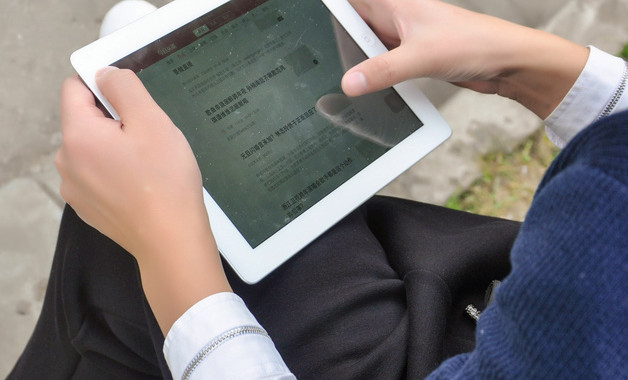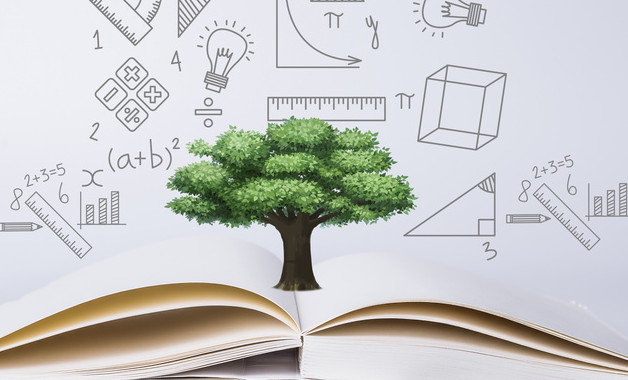
第1篇 感恩,我们在行动——高中老师演讲稿
您正在阅读“感恩,我们在行动——高中老师演讲稿”亲爱的同学们:
大家下午好!今天很高兴能有机会和同学们聊聊与我们成长密切相关的一些话题。我先自我介绍一下,我叫××。我刚来××学校,学校就给我在全校师生面前开口的机会,我第一次在广播大会上向全校师生作了《人人都能成功》的报告。今天,我能再次以朋友的身份和大家聊聊。我首先要感谢学校的领导,是他们的信任,才让我与你们近距离交谈,我更要感谢我可爱的学生们,是你们的支持,才让我有了作这个报告的必要。常言道:“滴水之恩,当涌泉相报。”其实,我今天要讲的题目就是“感恩,我们在行动”。
记得在上个大周的那个周日,我从高三上完课回办公室的途中,经过×班教室时,我听到一句清脆的声音:“妈,节日快乐,今天是母亲节,您在外边要注意身体啊!”那是一个漂亮的女生在给她母亲祝福呢!多懂事的孩子啊!我也情不自禁的拿起电话拨通了家里的号码。
我常常走在校园的道路上,都有一些我教育过或没教育过的学生碰到我,大老远就鞠躬行礼:“姜老师好!”多文明的学生啊!我也情不自禁道一声:“你好!”
在我的班上有一个叫刘子龙的学生,调皮、任性、不爱学习,我曾经找他谈心,他一副玩世不恭的模样,我气不打一处来,狠狠地将他斥责了一番,甚至都说出了一些气急败坏的话:“你做我的学生,真是给我脸上抹黑。”我原以为,他会因为我的气话破罐子破摔,没想到,第二天,他就给我写了封信,说:“老师,真的很感谢您,没有想到您这么在乎我,我错了,我一定会好好学习的。”看完后,我心酸酸的,多听话的孩子啊!我也情不自禁拿起笔给他写点东西。
一个个令我感动的场面不时在我眼前闪现。
但并不是每一个学生都能做到这样。不信,我现在问一下同学们:“记得父母生日的同学请举手”,“知道你的一个老师的生日的同学请举手”,“从来都未欺骗过别人的同学清举手”。嗯,少之又少了,可能刚才都有同学回答我问题时欺骗了我。但是,我不欺骗你们,我知道我父母生日是在我上了大学以后,有同学可能会笑姜老师,怎么连父母生日都不知道还教我们感恩。其实,是因为我们上学那时还没有生日的概念,因为在高中前我连我自己生日都不知道,我们那时生活并不宽裕,没条件过什么生日。上了大学后,我申请加入中国××时,要搞家庭历史情况调查,要填写父母生日,这时,我才打电话问我爸妈生日,从此,我就记在了我的脑海里,现在工作后,有条件给爸妈过生日了,
第2篇 青春我们在路上演讲稿
青春我们在路上演讲稿
使用正确的写作思路书写演讲稿会更加事半功倍。在现在的社会生活中,接触并使用演讲稿的人越来越多,那么,怎么去写演讲稿呢?下面是小编精心整理的青春我们在路上演讲稿,欢迎阅读,希望大家能够喜欢。
青春我们在路上演讲稿
尊敬的老师,亲爱的同学们:
大家好!
路上的你总是有所不同。现在的你与曾经相比,更是截然两样。
现在的你是否依然那样胆小、害怕,是否总是吵着要糖吃。我想,现在的你应该已经长大了,已经变得更成熟。
十年前曾见到你,你还只是个孩子。天真无邪的你,每天总是打打吵吵闹闹。你的眼睛里的那份纯净是这世上最圣洁的东西的东西。那时候,你的心很简单,简单的就像一个透明的气泡一般纯。你心底处萌发的种子,微小、弱微。让人舍不得去触碰它,生怕破坏它那一点嫩芽。
直到它渐渐长大,生成一颗小树。那时见你时,你已背起了书包走进了校园。从那时起,你就要开始为了自己的人生而努力。
路走多了,一切就那么顺理成章了。在路上经过不少的熏陶,你终于开始渐渐独立自主的行走自己的人生。
再一次见你时,已是今天。
正当青春的你,年少轻狂。总是有一把燃烧不尽的热情,似火一样的燃烧。总是要在结果出来才知道自己的错误。但也只有这样,你才可以逐渐成长,成长为一个又责任感的人。
在这里,我想告诉你。你在路上走过的这段时间里,你应该足够成熟,以承担一些你的父母已经承担多年的责任。
他们养育你,保护你,帮助你,迎合你,恳求你,原谅你,容恋你,并且否认自己需要安慰,为的是可以让你得到一切益处。他们乐意这么做,因为你时他们最亲爱的宝贝。
但如今,你已经没有权利去期望他们会屈从你的每一个奇思妙想,因为这些想法出于自私的自我,而不是常识。
路上的你,请快点成长起来。
路上的你,也是时候该成熟了。
眨眼过去,从昨天到今天,从十年前到如今。这些岁月的人、情、事、物,过了许久依然印刻在脑海里。
路上的你正在努力奋斗吗?
我想,是的。
为了美好的明天,路上的你在路上吃点亏,吃点苦算什么。“既然选择了远方,便只顾风雨兼程。”路上、再苦再累也要走,即使摔倒,也要重新爬起。手握理想走向远方。
这、一字、一句送给路上的你。
送给在路上的自己。
谢谢大家!
青春我们在路上演讲稿,尽在酷猫写作范文网。
第3篇 我们在成长的演讲稿
南飞的大雁带走回不来的时光,带走年少无知的拽带来轻狂的几年,下面是小编为大家收集关于我们在成长演讲稿,希望能帮到你。
青春是一场勤奋的较量
每当一个新年过去的时候,我们总会对自已说,又长大了一岁。
我们是否曾经问自己,长大是什么?
当觉得年味越来越淡,岁数的增长不能让你兴奋,只能让你烦恼的时候,你是不是就算长大了?
当你对周一升旗的形式有了那么一点抵触,对鼓舞士气的话越来越有抵抗力的时候,你是不是就算长大了?
在无数次“带着雄心放假回家、带着遗憾开学返校”之后,你是不是就算长大了?
每当我看到本应青春阳光的脸上,因为这些所谓的“长大”而增添了垂垂老气,或者多了一份令人讨厌的圆滑世故,或者多了一份屡战屡败的无奈的时候,我都觉得,真正的成长不是这样。
我想对你说:青春还应该另外一种长大的方式。这长大不仅仅与时间有关,更与心胸有关,与智慧有关,与激情有关!真正的成长增加的不仅仅是年龄,更增加了成熟的理智和对责任的担当;真正的成长不仅仅需要拥有追求更高名次的能力,更要有不为考试排名所累的信心与气魄;真正的成长是不仅仅能够有愤漆式的深刻批判,更要有包容的心胸和源自心灵深处的热爱;真诚的成长不仅仅是闭门造车不顾一切的努力,更要有虚怀若谷、博采众长的气度与胸怀;的确,成长有的时候很残酷,奇迹不会属于每一个人,但是追求奇迹的青春却可以属于每一个人,伴随那份追求的畅快与无悔是每个人都拥有。
所以,无论多么复杂的局面,请让我们努力保留一份简单的心情。有一份与分数无关的单纯,有一份与升学无关的畅快,就这样简单的拼搏,简单地生活。青春的精彩,可我认为,简单单的心情最快无论多忙多累,请让我们的心灵始终醒着;把一份关注给社会,把一片热情给生活,送一份真诚给同学,留一个微笑给自己。
无论多忙多累,请给自己一个锻炼身体的机会;可以是全班步伐整齐的跑步,也可以是晚自习之后自由自在的慢跑,可以是平时再快一点的 脚步,可以是体育课上无约无束的奔跑。青春的精彩数不尽,可我认为奔跑的姿态最潇洒。无论曾经多么辉煌多么落魄,都心存一份感激;感激辉煌给予我们动力,感激困难给予我们磨砺,感激一路上陪伴我们的人。在最考验耐力的高二也好,在最考验定力的高一也好,在最考验习惯的初中也好,都请自觉地设计自己,锻造自己。青春的精彩说不完,可我认为,自觉的成长最智慧;无论学习和生活多么艰难,都请记得,给生活一张漂亮的脸。
人间春色本无价,笔底耕耘总有情。青春是一场勤奋的较量!向前冲,从此与众不同!谢谢大家!
我的成长
大家好!
很高兴我又能站在这里与大家谈一些关于成长的话题。
我们还都很年轻,有很大的发展余地。但是,首先有这样一点需要承认,我们中的大多数人还算不上成熟,还有待成长。做事情有对有错,有的做得好有的做得不好。首先希望我们能认识到这一点。
我们以后将要去做很多事,到工作岗位中去独当一面,作出决定与得到结果。如果让我们现在去参加工作,我们很可能会做不好,会出现这样或那样的问题,让别人看起来不满意,我们的一些说话办事的方式都会让别人感觉到还不成熟。因为我们现在的经验和素质还很不够。可以说我们的经验与素质,就像杯子里的水,现在还很少,并不多。
那么,三年以后呢?三年以后,我们的年龄增长了一些,但是,年龄的增长并不直接等同于经验与素质的增长。如果我们在这四年里得到一些经验的话,那么杯子里的水就会增多,以后做事就会让人觉得像样。反之,如果这四年里我们什么也没得到,那么三年后我们还是这么多水。即使是去参加工作,我们也会和现在去参加工作一样,会有很多的失败。也就是说:如果不往杯子里添水,那么三年后它还是那么多。
为什么这样说呢?现在一些大学毕业生在工作中所表现出的言谈举止并不能让人感到满意,所做所想还不成熟,多多少少地让人感到一种幼稚。所以如果我们在大学四年里能够多做一些,多积累一些,在思想方面和能力方面充实自己,那么我们将来是不是会更好一些呢?对我们自己,对公司都是一件有益的事!
所以说,现在开始,你们要做的就是:往杯子里添水。水是指什么呢?就是一些的经验与素质。一是指我们的经验,包括我们做过的一些事,包括成功或失败,并从中知道,下次该怎样做才对。一是指我们所明白的道理,做事的原则,思考问题的方法,看问题的出发点,判断事物的准则。
所以从现在开始,希望我们能够注意去做三件事:
一是去尝试一些事情,成功或失败都要记录在案。最重要的是要反思,一件事情,做完了也就做完了,如果我们从中反思,还会体会到更多的东西。做事情也就意味着与别人交往,只有在实际与别人交往之后,才会体会到应该怎样去做。
二是去接受一些说教,说教也许会很烦人,或许应该说真的是很烦人,但是如果我们能够从别人的话语中提取到有用的东西,那么就相当于别人往我们的杯子里添了水。赚的东西为什么不要呢?现在的年轻人中有一大部分人有一种反驳的倾向。对于别人的教导或是评论,总是能够找出理由来反驳。比如像我,呵呵其实这是一种很不好的习惯。如果我们不懂得谦虚,那么在别人说话时就只会想反驳,然后是争辩。
因此别人说的话你就不会听进去。别人的话有好有坏,如果我们总是这样,那么我们听到的话就会越来越少,就会错过一些好话。那么,我们便没有了提高自己素质、丰富自己思想的来源,亦即意味着我们不会进步。因此,要试着学会去"听"话。说到这里有一点必须得提一下,那就是我们的辅导员,大家都看的出来李峰老师是一个很健谈的人,而且多次向我们提出过交心的邀请!!o(∩_∩)o~大家都应该知道怎样去做!!认真地听取别人的话,然后运用自己的头脑进行思考,对其进行取舍,并感悟其中的道理,这样才能充实自己的思想,使自己的素质有所提高。这,才是你们需要做的。
三是要看书,看看别人做过的事,总结出的经验,看别人的成功与失败,吸取其中有益的东西,来充实自己的思想。古语说得好:“书中自有黄金屋,书中自有颜如玉!”吗!!呵呵!!!
如果我们不做这些事,还可以用你自己的聪明头脑去想以后怎么做,也会有所进步。但是有这样一点需要注意:我们自己的智慧终究是有限的,而且我们在大学的时间也只剩下了三年。自己往杯子里添水,量再多也只有一点点,如果我们能够吸收别人用时间换来的经验,那么可以想象:我们杯子里的水将会增加很多。只有那样,我们才能以一个饱满的姿态去面对社会,去挑战明天。
呵呵!谢谢大家今天又能坚持坐在这里听我讲了这么多!!谢谢!!希望大家以后生活得幸福精彩!
我在工作中成长
不知不觉间,我已经换岗工作半年了。在这半年的时间里,我学到了很多,这是一段宝贵的经历,它教会了我摆正自己的心态,正确对待工作,为人处事要谦和,做好定位提升自我。
记得一位知名企业的人力总监说过一句话“职场不可能人人都是精英,我们需要的是大量敬业而忠实的员工。只要你可以‘不骄不躁、谦虚谨慎、勤奋好学、踏踏实实’,那么你完全具备了成为我们企业优秀员工的资格!”这些话带给我很多的启发。带着这样一种精神,我开始了我的工作。但在实际的工作中却发现,有些时候光敬业是不行的,还需要用心去思考、揣摩,而要把工作做好也需要一些技巧和方法。
因为工作的关系,我需要和公司业务员打交道,他们就像我的每一位客户对我们的服务要求也不一样。有时一天面对几十个人,心里感觉很是烦躁,可是领导和同事的教诲让我学会转换心中的烦恼,把遇到的每一项麻烦事都当成是对我的一种磨砺和考验。
这半年里,我由最初的慌乱不知所措到现在的沉着冷静,我收获了很多也成长了很多,就像一句话说的好:感谢伤害你的我,因为他磨练了你的心志;感谢欺骗你的我,因为他增进了你的智慧;感激鞭打你的人,因为他激发了你的斗志。现在,我要感谢工作,因为它让我成长了很多。
第4篇 “2012年,我们在这里出发”的导游敬业演讲稿
敬的各位领导、各位来宾、各位同仁:
大家好!
我是××公司的一名导游员,从事导游工作已经近四个年头了。有人曾问我为什么要做导游,我说“喜欢”。我从小就梦想当一名导游,200×年毕业于旅游学校导游专业,我非常热爱这个职业,毕业以后至今一直从事导游这个工作。
俗话说,祖国山水美不美,全靠导游一张嘴。导游是一个旅游团队的组织者和指挥者,是旅游行业的形象大使,是城市文明的流动风景线。旅游界常说:“没有导游的旅游是没有灵魂的旅游”。在一般人看来,导游常常带团出门,天南海北到处跑,“吃喝玩乐”,挺潇洒的,其实这是对导游工作的误解。当一名出色的导游,并不象人们想象的那么简单。有人这样给导游下个这样一个形象的定义“铜头,铁腿,蛤蟆肚,婆婆嘴”。其实,从外事角度看,导游是“民间大使”;从服务角度说,导游是“特殊的保姆”;从宣传角度上讲,导游又是“政策宣传员”;从知识结构角度衡量,导游应该是一名“杂家”。每次带团出游,从安排车辆、吃饭住宿、旅游线路,到提醒游客在当地的注意事项,以及处理各种问题等,每一个细节都要考虑到,真是酸甜苦辣各种滋味都有。俗话说:“要受气看足球,要受累去旅游”,但是行千里路胜似读万卷书。如果不做导游的话,我无法知道,在辛劳的背后,导游也是一个很容易感受到幸福的职业,这种幸福不在于在广大众人面前有多么风光,而在于我付出的每一份努力,能得到游客的认可。
现在有不少人把导游看作是一种短期的兼职工作,认为作导游只是年轻时的职业,是吃青春饭的,没有什么发展空间。我不这么认为。事实上,只要你热爱这个行业,就有自己发挥能力的空间和上升的机会。由于个体的不同,做为导游会利用自己的特长展示自我,有的人年轻漂亮,可以把这种青春的活力传达给客人;有的人知识渊博,可以让客人在一个接一个的历史故事中回味无穷。当然导游仅有年轻漂亮是不够的,导游面对的是形形色色的客人,总统、市长、工人、知识分子,也有人目不识丁。这就增加导游的难度,要求每位导游员必须有渊博的知识才能胜任。随着社会经济的发展,旅游业将更显示其勃勃向上的生机,可以说,在未来,我国的旅游业一直会呈上升趋势。所以,紧缺的不是导游,而是好的导游、优秀的导游。要成为一名优秀的导游,不是“几年之功”可以达到的,更何况如果真的热爱旅游行业,做导游也是向成为一名优秀旅游行业管理人员过渡的重要阶段,这种从底层做起,掌握业务各环节操作的经历会成为将来管理中的宝贵借鉴和依据。因此说,导游的发展空间很大,就看你如何把握。
其实做导游很多时候心里是甜滋滋的,在团友终于一偿所愿,看见梦寐以求的风景时;在使尽浑身解数时,使突发事件消失于无形时;在长长的旅途归来,团友露出疲立而又满足的神情时,我的心总像吃了蜜般甜,相比之下,前面所说的酸涩、苦闷与诱惑又算得了什么!正如一位前辈所说:如果说有哪一种职业是彻头彻尾地人带来欢乐的,那只能是——导游。”对于我来说,其它职业的诱惑好比辣椒,味道虽诱人,但不适合我。
导游员是修炼的行者,我常常这样想。要当好行者,“十年磨一剑”是必不可少的过程。一年有三分之一的时间是在车上,三分之一的时间在不安的睡眠中,而这最后的三分之一还要用来学习。但我无怨无悔,因为我热爱这个行业,我渴望在广阔的山水间展露自己的才能,就像阿基米德说过:假如给我一个支点,我可以撬起整个地球。因此我想说:我爱旅游,更爱导游这个职业,选择我所爱的,爱我所选择的。生命是一首歌,我愿做一名终生畅游山水间的职业人,只要我能走得动,我将做一位白发导游。
第5篇 ted英语演讲稿:我们在出生前学到了什么
my subject today is learning. and in that spirit, i want to spring on you all a pop quiz. ready? when does learning begin? now as you ponder that question, maybe you're thinking about the first day of preschool or kindergarten, the first time that kids are in a classroom with a teacher. or maybe you've called to mind the toddler phase when children are learning how to walk and talk and use a fork. maybe you've encountered the zero-to-three movement, which asserts that the most important years for learning are the earliest ones. and so your answer to my question would be: learning begins at birth.
well today i want to present to you an idea that may be surprising and may even seem implausible, but which is supported by the latest evidence from psychology and biology. and that is that some of the most important learning we ever do happens before we're born, while we're still in the womb. now i'm a science reporter. i write books and magazine articles. and i'm also a mother. and those two roles came together for me in a book that i wrote called "origins." "origins" is a report from the front lines of an exciting new field called fetal origins. fetal origins is a scientific discipline that emerged just about two decades ago, and it's based on the theory that our health and well-being throughout our lives is crucially affected by the nine months we spend in the womb. now this theory was of more than just intellectual interest to me. i was myself pregnant while i was doing the research for the book. and one of the most fascinating insights i took from this work is that we're all learning about the world even before we enter it.
when we hold our babies for the first time, we might imagine that they're clean slates, unmarked by life, when in fact, they've already been shaped by us and by the particular world we live in. today i want to share with you some of the amazing things that scientists are discovering about what fetuses learn while they're still in their mothers' bellies.
first of all, they learn the sound of their mothers' voices. because sounds from the outside world have to travel through the mother's abdominal tissue and through the amniotic fluid that surrounds the fetus, the voices fetuses hear, starting around the fourth month of gestation, are muted and muffled. one researcher says that they probably sound a lot like the the voice of charlie brown's teacher in the old "peanuts" cartoon. but the pregnant woman's own voice reverberates through her body, reaching the fetus much more readily. and because the fetus is with her all the time, it hears her voice a lot. once the baby's born, it recognizes her voice and it prefers listening to her voice over anyone else's.
how can we know this? newborn babies can't do much, but one thing they're really good at is sucking. researchers take advantage of this fact by rigging up two rubber nipples, so that if a baby sucks on one, it hears a recording of its mother's voice on a pair of headphones, and if it sucks on the other nipple, it hears a recording of a female stranger's voice. babies quickly show their preference by choosing the first one. scientists also take advantage of the fact that babies will slow down their sucking when something interests them and resume their fast sucking when they get bored. this is how researchers discovered that, after women repeatedly read aloud a section of dr. seuss' "the cat in the hat" while they were pregnant, their newborn babies recognized that passage when they hear it outside the womb. my favorite experiment of this kind is the one that showed that the babies of women who watched a certain soap opera every day during pregnancy recognized the theme song of that show once they were born. so fetuses are even learning about the particular language that's spoken in the world that they'll be born into.
a study published last year found that from birth, from the moment of birth, babies cry in the accent of their mother's native language. french babies cry on a rising note while german babies end on a falling note, imitating the melodic contours of those languages. now why would this kind of fetal learning be useful? it may have evolved to aid the baby's survival. from the moment of birth, the baby responds most to the voice of the person who is most likely to care for it -- its mother. it even makes its cries sound like the mother's language, which may further endear the baby to the mother, and which may give the baby a head start in the critical task of learning how to understand and speak its native language.
but it's not just sounds that fetuses are learning about in utero. it's also tastes and smells. by seven months of gestation, the fetus' taste buds are fully developed, and its olfactory receptors, which allow it to smell, are functioning. the flavors of the food a pregnant woman eats find their way into the amniotic fluid, which is continuously swallowed by the fetus. babies seem to remember and prefer these tastes once they're out in the world. in one experiment, a group of pregnant women was asked to drink a lot of carrot juice during their third trimester of pregnancy, while another group of pregnant women drank only water. six months later, the women's infants were offered cereal mixed with carrot juice, and their facial expressions were observed while they ate it. the offspring of the carrot juice drinking women ate more carrot-flavored cereal, and from the looks of it, they seemed to enjoy it more.
a sort of french version of this experiment was carried out in dijon, france where researchers found that mothers who consumed food and drink flavored with licorice-flavored anise during pregnancy showed a preference for anise on their first day of life, and again, when they were tested later, on their fourth day of life. babies whose mothers did not eat anise during pregnancy showed a reaction that translated roughly as "yuck." what this means is that fetuses are effectively being taught by their mothers about what is safe and good to eat. fetuses are also being taught about the particular culture that they'll be joining through one of culture's most powerful expressions, which is food. they're being introduced to the characteristic flavors and spices of their culture's cuisine even before birth.
now it turns out that fetuses are learning even bigger lessons. but before i get to that, i want to address something that you may be wondering about. the notion of fetal learning may conjure up for you attempts to enrich the fetus -- like playing mozart through headphones placed on a pregnant belly. but actually, the nine-month-long process of molding and shaping that goes on in the womb is a lot more visceral and consequential than that. much of what a pregnant woman encounters in her daily life -- the air she breathes, the food and drink she consumes, the chemicals she's exposed to, even the emotions she feels -- are shared in some fashion with her fetus. they make up a mix of influences as individual and idiosyncratic as the woman herself. the fetus incorporates these offerings into its own body, makes them part of its flesh and blood. and often it does something more. it treats these maternal contributions as information, as what i like to call biological postcards from the world outside.
so what a fetus is learning about in utero is not mozart's "magic flute" but answers to questions much more critical to its survival. will it be born into a world of abundance or scarcity? will it be safe and protected, or will it face constant dangers and threats? will it live a long, fruitful life or a short, harried one? the pregnant woman's diet and stress level in particular provide important clues to prevailing conditions like a finger lifted to the wind. the resulting tuning and tweaking of a fetus' brain and other organs are part of what give us humans our enormous flexibility, our ability to thrive in a huge variety of environments, from the country to the city, from the tundra to the desert.
to conclude, i want to tell you two stories about how mothers teach their children about the world even before they're born. in the autumn of 1944, the darkest days of world war ii, german troops blockaded western holland, turning away all shipments of food. the opening of the nazi's siege was followed by one of the harshest winters in decades -- so cold the water in the canals froze solid. soon food became scarce, with many dutch surviving on just 500 calories a day -- a quarter of what they consumed before the war. as weeks of deprivation stretched into months, some resorted to eating tulip bulbs. by the beginning of may, the nation's carefully rationed food reserve was completely exhausted. the specter of mass starvation loomed. and then on may 5th, 1945, the siege came to a sudden end when holland was liberated by the allies.
the "hunger winter," as it came to be known, killed some 10,000 people and weakened thousands more. but there was another population that was affected -- the 40,000 fetuses in utero during the siege. some of the effects of malnutrition during pregnancy were immediately apparent in higher rates of stillbirths, birth defects, low birth weights and infant mortality. but others wouldn't be discovered for many years. decades after the "hunger winter," researchers documented that people whose mothers were pregnant during the siege have more obesity, more diabetes and more heart disease in later life than individuals who were gestated under normal conditions. these individuals' prenatal experience of starvation seems to have changed their bodies in myriad ways. they have higher blood pressure, poorer cholesterol profiles and reduced glucose tolerance -- a precursor of diabetes.
why would undernutrition in the womb result in disease later? one explanation is that fetuses are making the best of a bad situation. when food is scarce, they divert nutrients towards the really critical organ, the brain, and away from other organs like the heart and liver. this keeps the fetus alive in the short-term, but the bill comes due later on in life when those other organs, deprived early on, become more susceptible to disease.
but that may not be all that's going on. it seems that fetuses are taking cues from the intrauterine environment and tailoring their physiology accordingly. they're preparing themselves for the kind of world they will encounter on the other side of the womb. the fetus adjusts its metabolism and other physiological processes in anticipation of the environment that awaits it. and the basis of the fetus' prediction is what its mother eats. the meals a pregnant woman consumes constitute a kind of story, a fairy tale of abundance or a grim chronicle of deprivation. this story imparts information that the fetus uses to organize its body and its systems -- an adaptation to prevailing circumstances that facilitates its future survival. faced with severely limited resources, a smaller-sized child with reduced energy requirements will, in fact, have a better chance of living to adulthood.
the real trouble comes when pregnant women are, in a sense, unreliable narrators, when fetuses are led to expect a world of scarcity and are born instead into a world of plenty. this is what happened to the children of the dutch "hunger winter." and their higher rates of obesity, diabetes and heart disease are the result. bodies that were built to hang onto every calorie found themselves swimming in the superfluous calories of the post-war western diet. the world they had learned about while in utero was not the same as the world into which they were born.
here's another story. at 8:46 a.m. on september 11th, 2019, there were tens of thousands of people in the vicinity of the world trade center in new york -- commuters spilling off trains, waitresses setting tables for the morning rush, brokers already working the phones on wall street. 1,700 of these people were pregnant women. when the planes struck and the towers collapsed, many of these women experienced the same horrors inflicted on other survivors of the disaster -- the overwhelming chaos and confusion, the rolling clouds of potentially toxic dust and debris, the heart-pounding fear for their lives.
about a year after 9/11, researchers examined a group of women who were pregnant when they were exposed to the world trade center attack. in the babies of those women who developed post-traumatic stress syndrome, or ptsd, following their ordeal, researchers discovered a biological marker of susceptibility to ptsd -- an effect that was most pronounced in infants whose mothers experienced the catastrophe in their third trimester. in other words, the mothers with post-traumatic stress syndrome had passed on a vulnerability to the condition to their children while they were still in utero.
now consider this: post-traumatic stress syndrome appears to be a reaction to stress gone very wrong, causing its victims tremendous unnecessary suffering. but there's another way of thinking about ptsd. what looks like pathology to us may actually be a useful adaptation in some circumstances. in a particularly dangerous environment, the characteristic manifestations of ptsd -- a hyper-awareness of one's surroundings, a quick-trigger response to danger -- could save someone's life. the notion that the prenatal transmission of ptsd risk is adaptive is still speculative, but i find it rather poignant. it would mean that, even before birth, mothers are warning their children that it's a wild world out there, telling them, "be careful."
let me be clear. fetal origins research is not about blaming women for what happens during pregnancy. it's about discovering how best to promote the health and well-being of the next generation. that important effort must include a focus on what fetuses learn during the nine months they spend in the womb. learning is one of life's most essential activities, and it begins much earlier than we ever imagined.
thank you.
第6篇 《感恩,我们在行动》演讲稿
亲爱的同学们,老师们:
大家好!常言道:“滴水之恩,当涌泉相报。”其实,我今天要讲的题目就是“感恩,我们在行动”。
近年来,随着社会环境的变化,多元文化的影响,以及教育的缺失,使包括感恩在内的许多中华传统美德受到了不同程度的冲击,感恩之心,报恩之情,在不少人心目中大打折扣。一些青少年以自我为中心,漠视宝贵的亲情、友情,、师生情,更有不少独生子女有了唯我独尊,骄横任性,只想索取,不思回报的思想,厌学贪玩,迷恋网吧,甚至早恋,不求上近,盲目攀比,不懂得体谅父母的辛劳,肆意挥霍父母的血汗钱,令人遗憾的成了“不懂感谢,不愿感激,不会感动”只知道索取的“冷漠一代”。
试想,像这们的同学对待父母尚且如此,又怎么敢奢望他们会善待老师和朋友呢?如果国家有难,又怎么敢指望他们为国家抛头胪洒热血呢?如果人人都这么自私自利的话,社会哪里还会有温情呢?如果我们生活在这个失去温清的世界,那么我们活着又有什么意义呢?这是多么可怕的事情啊!如果今天真是你生命中的最后一天,你又会去做什么呢?我们要做的第一件事情,就是报答养我育我的父母!为他们献出自己的一份爱心。光靠喊口号是没有任何用处的,我们应该用我们的实际的行动来关爱我们的父母。
感恩父母、孝顺为责。同学们应该都学过朱自清的《背影》与史铁生的《我与地坛》吧! 我每读一次,都感到泪要掉下来,因为我想到了我的父母,今年清明节,我回家看望父母,要返校上班了,可天下着雨,从我家到公路还有一段泥巴路,于是我爸就推出三轮车,让我和我朋友坐在上面,一直推着我们到公路上等车,直到我们上车后,我父亲才推着车子回去。我朋友说:“你一定要把你爸背影记下来”,同学们,现在给你们一分钟时间,你们闭上眼睛,想想你的父母吧!……好!想完之后,你是否发现,爱其实就在我们的身边,我们并不缺少爱,缺少的只是发现爱的双眼。
其实,爱我们的人还很多,比如教给我们知识的老师。“生我者父母,成我者师也”,所以我们要感谢我们的老师。
感恩老师,进步为责。给我记忆最深的老师是我大学时的古代文学老师,全国王维研究会会长师长泰先生,70岁高龄了,还在为我们传授知识,我们也很荣幸地成为他的关门弟子,并且,他还送给我们每人一本他老人家写的书,他对我们说:“我的知识又不能带到土里去,我要教给你们。”所以,我的古代文学书上笔记是记得密密麻麻,期末考试还考了专业第一名。其实,我们××学校也不乏这样的老教师,老领导为了回报社会发挥余热,毫不吝啬的教给我们知识,我们有什么理由不去虚心学习呢?可也有一些怪事发生在校园内,前几天,学校要求走读生一律凭证出入,有一学生无证被门卫揪住,要他去找班主任,这学生来了一句:“我又不晓得我班主任是哪个”这位同学,我真想问一句:“你还认识你父母吗?”或是,我想有一天,你可能连自己都不认识了。同学们,我希望像这样的事情不要再发生了,“心念父母人常好,志报师恩品自高”,不管是在校内,还是校外,见到老师,都要叫声:“老师好!”
我们不仅要感恩父母,感恩老师,还要感恩学校。
感恩学校,文明为责。我们要感谢给我们提供学习机会和场所的××学校。我们老师也要感谢给我们提供就业岗位和锻炼的××学校。可有同学却偏不爱护她,甚至抱怨这是垃圾学校,李校长曾经为我们作了一个生动的比喻:一辆卡车,在没有装上东西时我们叫它卡车,可有一天,它被安排去运输垃圾,最后人们都叫它垃圾车,同学们,明白其中的意味了吗?你还这样去叫你的母校了吗?或者有同学还在说,我要是上一中、二中就好了,其实我告诉你一句话,希望你们能永远记住:最重要的不是你身在何处,而是朝什么方向走。或者有同学还在抱怨,说学校伙食差,学校床板硬。那我先给同学们讲个故事吧。传说,有个寺院的住持,给寺院里立下了一个特别的规矩,每到年底,寺里的和尚都要面对住持说两个字。第一年年底,住持问新和尚心里最想说什么,新和尚说:“床硬”。第二年年底,住持又问新和尚心里最想说什么,新和尚说:“食劣”。第三年年底,新和尚没等住持提问,就说出两个字,同学们猜猜看是哪两个字——“告辞”。住持望着新和尚的背影自言自语地说:“心中有魔,难成正果,可惜!可惜啊!”同学们,三年时光,你们来这里干什么的?三年后能否修成正果,就要看你们自己了,文明起来吧!振作起来吧!让××学校明天以我为荣。
树木感恩于大地,用落叶来肥沃土壤;禾苗感恩于农人,将成熟的籽粒呈上;乌鸦感恩于母爱,以反哺来回报亲情,羊儿感恩于母乳,以跪乳来表达敬意……物犹如此,人何以堪?
我们生活在这个社会上,还要感恩社会,奉献为责。在去年5月12日汶川地震后,我校师生积极组织募捐,团委会、学生会干*游杰、沈辉鹏等在班级捐款后,又组织团委会、学生会全体成员捐款上千元,这样优秀的学生,懂得奉献的学生,也是××学校教育的。同学们,难道我们不应该去感恩些什么吗?
我们还要感恩自然,环保为责,我们每天呼吸的氧气,都是由树林制造的,我们每天听到的鸟叫声,都是世间最美妙动人的旋律,我们每天喝的水,都流淌在我们的体内,同学们,你还心忍去破坏它们吗?当你看到有人在掰操场旁的竹笋时,你会去制止他吗?当你看到有人在砍校门口的香樟树时,你会去阻止他吗?当你看到有人在摘广玉兰花朵时,你会说:“让我们大家都来欣赏”吗?
我们还要感恩挫折和失败,让人生走向成功,同学们,挫折和失败是我们最好的老师,它能让我们更加成熟,最后迎接我们的便是成功。我们要感谢批评过我们的人,感谢指责过我们的人,甚至要感谢打败过我们的人,因为这些磨砺了我们的意志。
同学们,行动起来吧!让我们举起手臂,一起宣誓:感恩父母,孝顺为责;感恩老师,进步为责;感恩学校,文明为责;感恩社会,奉献为责,感恩挫折和失败,让人生走向成功。
谢谢大家,我的演讲完毕。









